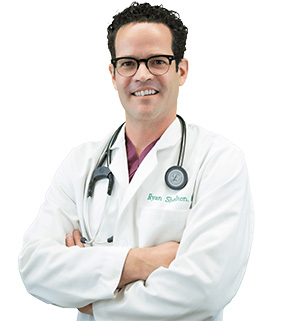Surveys have been given to thousands of individuals, and the resulting answers place eyesight at the top of the list of most necessary senses. Unfortunately, Mother Nature is a cruel sometimes, leaving us old and diminished by the time we’ve lived our lives.
However, our health and lives, namely how gracefully we age, are still largely in our own hands. Accepting some predetermined fate set forth for you by the invisible hand of nature is not an effective, productive mindset and there are plenty of things that can be done to combat Mother Nature and Father Time. Thankfully, many of the most effective choices we can make are quite simple.
Good health, especially in old age, relies heavily on dietary decisions made throughout a lifespan, and luckily, compounds that can help slow the aging process are found in abundance in the food we eat.
Along with the powerful antioxidant lutein, zeaxanthin can also aid in preserving eye health ad preventing age related macular degeneration (AMD), the number one cause of blindness in the developed world.
Zeaxanthin is a naturally occurring compound, giving pigment to many fruits and vegetables including corn, saffron, wolfberries, and many others. The foods highest in zeaxanthin are green leafy vegetables like spinach, chard, kale, turnip and collard greens, romaine lettuce, and watercress, among others.
Zeaxanthin is among the most important compounds for eye health found in nature. One of a group of antioxidants called carotenoids, zeaxanthin is one of the most common carotenoids found in nature. Zeaxanthin is one of two primary xanthophyll carotenoids contained within the retina of the eye. Zeaxanthin is the dominant component within the central retina and its counterpart lutein is the dominant component in the peripheral retina.
Studies are helping to shed light on how beneficial zeaxanthin is to eye health, especially in cases of age related loss of sight like AMD. In addition to helping prevent AMD, zeaxanthin and lutein have also been observed to possibly help prevent cataracts.
The major ocular problems that cause blindness among the elderly population, cataracts, glaucoma, and age-related macular degeneration, are found to be caused mainly by oxidative stress on the cells of the eyes. Oxidative stress is caused by free radicals, atoms or groups of atoms with an odd (unpaired) number of electrons and can be formed when oxygen interacts with certain molecules. Once formed, these highly reactive radicals can start a chain reaction, like dominoes, leading to the degradation of the body’s cells, damage to DNA, and eventually diseases like cancer and macular degeneration.
Antioxidants like zeaxanthin help to mitigate the damage caused by free radicals, and since it is found in such abundance in the eye, zeaxanthin is truly focused on preventing oxidative damage to the most important parts of the eye.
Where both the initiation and progression of ocular problems are concerned, oxidative stress plays an important role, thus, dietary antioxidants can serve as a therapeutic strategy for the improvement of ocular health. Not only is zeaxanthin known for being one of the most important and common xanthophyll carotenoids, but it also has very important anti-inflammatory properties, further enhancing its prowess as a preventer of disease. Studies show that nearly every chronic disease can be traced back to excessive inflammation in the body, and zeaxanthin helps prevent it.
Research published in Progress in Retinal and Eye Research helps to explain how zeaxanthin works to prevent AMD.
There are three concentrated carotenoids found inside the human macula, which are lutein, zeaxanthin, and meso-zeaxanthin. The body cannot make either lutein or zeaxanthin, the only way to get these compounds is via diet. Scientists believe that the body can create a compound called meso-zeaxanthin, a substance that is uncommon to most diets. Meso-zeaxanthin is believed to be formed at the macula, which is thought to use carotenoids we get via food to metabolically create meso-zeaxanthin.
While in the eye, these three carotenoids help to prevent damage from the most common offenders, including blue light, damaging sun exposure, and the free radicals that cause AMD and cataracts. The blue light spectrum is more harmful because it penetrates more deeply into the eye, causing a cumulative effect that damages the retina.
Statistics show that those who consume a standard American diet are most likely deficient in zeaxanthin, as well as lutein. This diet consists of an abundance of carbohydrates and refined sugars and lacks the proper number of fresh fruits and vegetables. If this is your diet, you’re most likely low on lutein and other important antioxidants.
A 2015 study, published in J.A.M.A. Ophthalmology, examined the medical benefits of carotenoids like zeaxanthin on age related macular degeneration. This study followed up on other studies that took place over the last 30 years to see if there were long term benefits from cardioids like zeaxanthin and lutein.
This study concluded that throughout the study population of 102,046 men and women, those who had optimal levels of zeaxanthin and lutein were about 40 percent less likely to develop symptoms of age-related macular degeneration.
To help prevent cataracts, zeaxanthin works alongside lutein to help prevent the clouding of the optic lens inside the eye. As free radicals flow throughout the body, they attach the body’s cells, even in the eye. This eventually damages the lens, causing it to become cloudy. However, studies are showing positive results concerning the ability of zeaxanthin and lutein to help prevent this from happening.
When looking after your eye health, there are more foods that contain high amounts of carotenoids than just the green leafy variety. While spinach, kale, greens, and watercress are all great sources of zeaxanthin, you can also find large amounts in eggs, broccoli, zucchini, garden peas, Brussels sprouts, asparagus and leeks.
But let’s be honest, we don’t always do the right things for our bodies. In these cases, it is easy to get zeaxanthin supplementation, but limit your purchases to trusted sources with good reputations.










